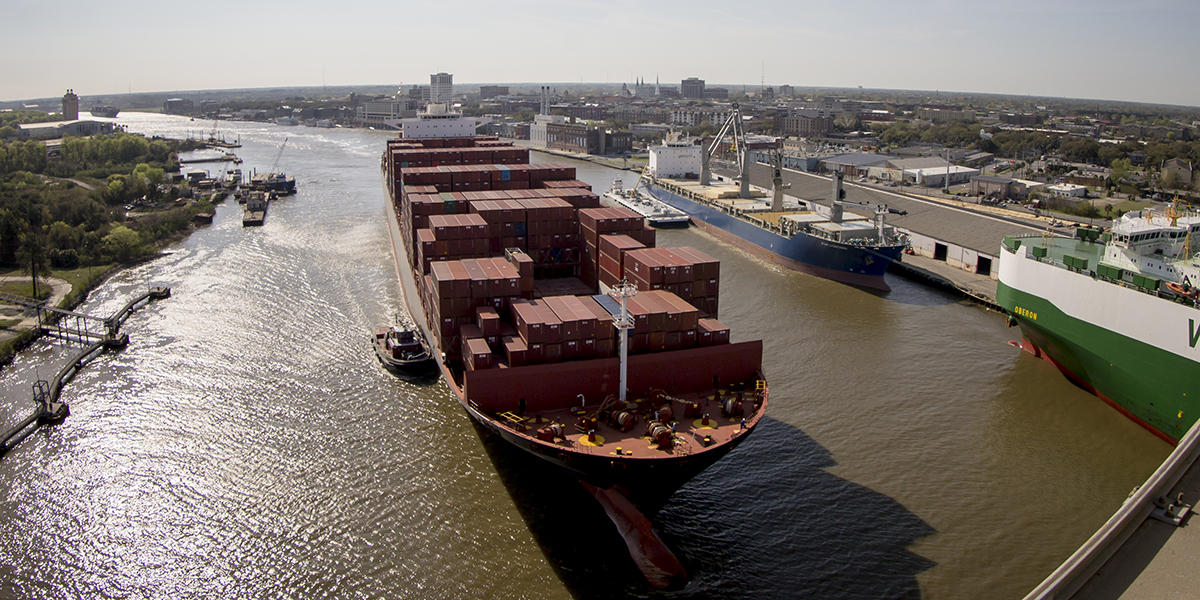Atlanta Exporters Could Benefit Long-Term Despite Trade Deficit

The ZIM Tianjin sails up-river past Savannah’s historic downtown on the way to the Georgia Ports Authority Port of Savannah.
STEPHEN MORTON / AP PHOTO/GEORGIA PORT AUTHORITY
The U.S. trade deficit jumped sharply in August as exports fell to the lowest level in nearly three years while imports increased.
This jump possibly stunted efforts from Mayor Kasim Reed and the Metro Atlanta Chamber to get area businesses to sell more of their products abroad. The deficit grew 15.6 percent to $48.3 billion, the biggest deficit since March, the Commerce Department reported Tuesday.
Exports of goods and services dropped 2 percent to $185.1 billion, the lowest level since October 2012, while imports rose 1.2 percent to $233.4 billion.
The new numbers mean the market abroad doesn’t look good for Atlanta area businesses, says Tibor Besedes, an economics professor at Georgia Tech.
“To some extent this campaign to increase Atlanta-area exports is running into a headwind given the global slowdown and the strengthening of the dollar,” he said. “Both of those forces will work against being able to increase exports out of the United States.”
Exports have been hurt this year by the rising value of the dollar, which makes U.S. goods less competitive on overseas markets, and by weaker economic growth in China and other major export markets.
But Besedes says, “If you’re well positioned and the local manufacturers are able to enter exporting and begin exporting then once the global economy recovers they might be well positioned to benefit from global growth.”
International trade deals like the Trans-Pacific Partnership (TPP) and the Transatlantic Trade and Investment Partnership (TIIPP) could speed up U.S. and Atlanta exports.
So far this year, the trade deficit is running at an annual rate of $531.6 billion, 4.6 percent higher than last year’s deficit of $508.3 billion.








